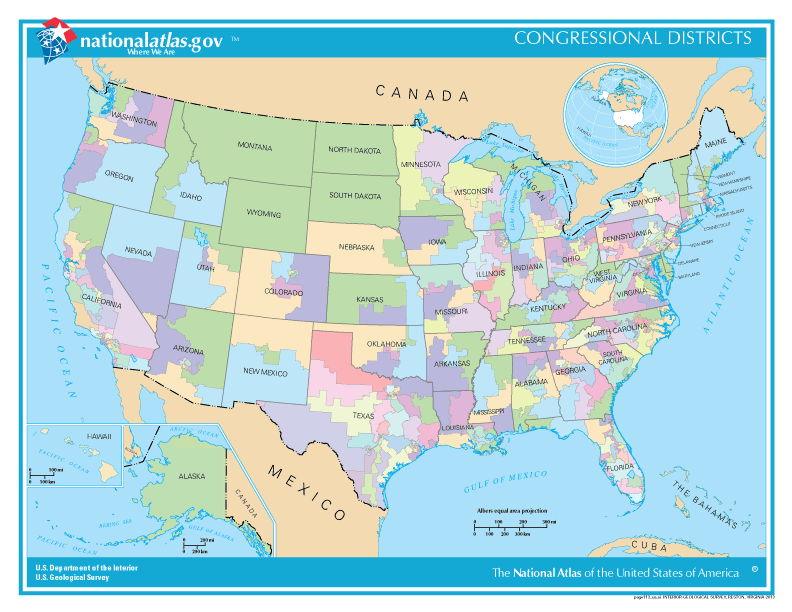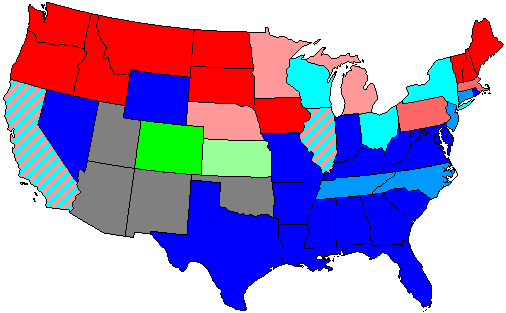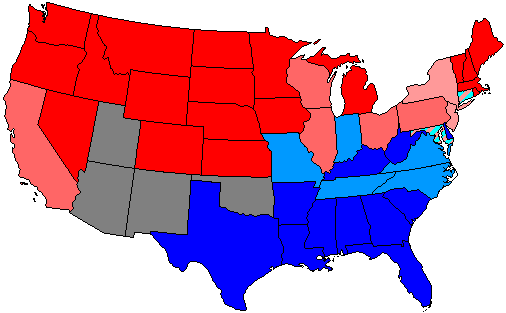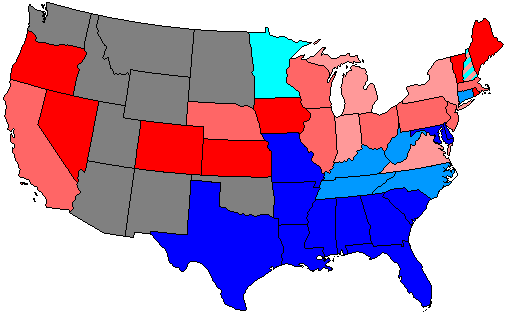|
Indiana's 13th Congressional District
Indiana's 13th congressional district was a congressional district for the United States House of Representatives in Indiana. It was eliminated as a result of the United States Census, 1930, 1930 Census. It was last represented by Samuel B. Pettengill who was redistricted into the Indiana's 3rd congressional district, 3rd District. List of members representing the district References * * Congressional Biographical Directory of the United States 1774–present Congressional districts of Indiana, 13 Former congressional districts of the United States 1875 establishments in Indiana 1933 disestablishments in Indiana Constituencies established in 1875 Constituencies disestablished in 1933 {{US-Congress-stub ... [...More Info...] [...Related Items...] OR: [Wikipedia] [Google] [Baidu] |
Congressional District
Congressional districts, also known as electoral districts and legislative districts, electorates, or wards in other nations, are divisions of a larger administrative region that represent the population of a region in the larger congressional body. Notably, Australia's districts are referred to as electorates or seats; in Canada, these are called "constituencies", or more informally "ridings". Countries with congressional districts include the United States, the Philippines, and Japan. Terminology Terminology for congressional districts vary by nations. The term "congressional district" is largely used in the United States and is distinctive from legislative districts. In the United States, congressional districts were inscribed into the Constitution to ensure representation based on population. Conversely, state legislation declares that "legislative representation be (built open) non-population related principles such as representation of counties, cities, or other geographical ... [...More Info...] [...Related Items...] OR: [Wikipedia] [Google] [Baidu] |
1892 United States House Of Representatives Elections In Indiana
The 1892 United States House of Representatives elections, coincided with the election of Grover Cleveland as president for the second, non-continuous, time, defeating incumbent Benjamin Harrison. In spite of the presidential results, Harrison's Republican Party gained back some of the seats that had been lost in 1890 to the Democratic Party, but was still deep in the minority. The Republican pickups were a result of a number of Republican-friendly Northern districts reverting to form after voting Democratic in the previous election cycle. The third party Populists, who had high support among farmers and laborers in the South and West, also gained three seats. Election summaries This was the first election after reapportionment following the 1890 Census. Twenty-four new seats were added, with 13 States gaining one seat each, two States gaining 2 seats each, and one state gaining 3 seats, and the remaining 28 states having no change. Several states did not redistrict following ... [...More Info...] [...Related Items...] OR: [Wikipedia] [Google] [Baidu] |
Charles G
Charles is a masculine given name predominantly found in English and French speaking countries. It is from the French form ''Charles'' of the Proto-Germanic name (in runic alphabet) or ''*karilaz'' (in Latin alphabet), whose meaning was "free man". The Old English descendant of this word was '' Ċearl'' or ''Ċeorl'', as the name of King Cearl of Mercia, that disappeared after the Norman conquest of England. The name was notably borne by Charlemagne (Charles the Great), and was at the time Latinized as ''Karolus'' (as in ''Vita Karoli Magni''), later also as '' Carolus''. Some Germanic languages, for example Dutch and German, have retained the word in two separate senses. In the particular case of Dutch, ''Karel'' refers to the given name, whereas the noun ''kerel'' means "a bloke, fellow, man". Etymology The name's etymology is a Common Germanic noun ''*karilaz'' meaning "free man", which survives in English as churl (< Old English ''ċeorl''), which developed its depr ... [...More Info...] [...Related Items...] OR: [Wikipedia] [Google] [Baidu] |
1890 United States House Of Representatives Elections In Indiana
The 1890 United States House of Representatives elections were held in the middle of President Benjamin Harrison's term. A stagnant economy which became worse after the Panic of 1890, combined with a lack of support for then Representative William McKinley's (defeated in the election) steep tariff act, which favored large industries at the expense of consumers, led to a sharp defeat for Harrison's Republican Party, giving a large majority to the Democratic Party and presaging Harrison's defeat in the 1892 United States presidential election. The Republican-controlled Congress was highly criticized for its lavish spending, and it earned the unflattering nickname of The Billion Dollar Congress. Democrats promised to cut the outlandish budget. Furthermore, aggressive Republican promotion of controversial English-only education laws enacted by Wisconsin and Illinois in 1889, accompanied by a surge in nativist and anti-Catholic sentiment within the state parties, had greatly hollowe ... [...More Info...] [...Related Items...] OR: [Wikipedia] [Google] [Baidu] |
1888 United States House Of Representatives Elections In Indiana
The 1888 United States House of Representatives elections were held at the same time as the election of President Benjamin Harrison. Harrison's Republican Party gained a majority in the House at the expense of the Democratic Party, even though incumbent President Grover Cleveland actually received more votes counted than Harrison. However, as in other elections in the period, widespread vote suppression and fraud was common on behalf of Democrats and against black Republicans in the South. The Republican House majority in uncontested elections unseated a number of initially reported as victorious Democratic candidates in favor of Republican candidates who contested their election loss. The issue of tariffs played a key role in this election. The Democrats, with the support of farmers and laborers, wanted to lower tariffs in order to promote free trade, while the Republicans, backed by industry and big business, believed that higher tariffs were necessary to protect American manuf ... [...More Info...] [...Related Items...] OR: [Wikipedia] [Google] [Baidu] |
1886 United States House Of Representatives Elections In Indiana
The 1886 United States House of Representatives elections were held in the middle of President Grover Cleveland's first term. As in many midterm elections, the President's party lost seats to the opposition, in this case, Democrats lost seats to Republicans, although a narrow majority was retained. Many of these Republican pickups were in the industrializing Midwest states, where the debate over tariffs, which were advocated by Republicans to protect domestic industry but opposed by Democrats to allow for free agricultural trade, led to political change. The small Labor Party, supported by industrial workers, gained one seat each in Virginia and Wisconsin, while the Greenback Party maintained its one seat in Iowa ( James B. Weaver). One Independent was also elected in North Carolina. Election summaries There were 2 Labor and 1 Independent members elected, and 1 Greenback member re-elected. The previous election saw just the Greenback elected. Special elections ... [...More Info...] [...Related Items...] OR: [Wikipedia] [Google] [Baidu] |
1884 United States House Of Representatives Elections In Indiana
The 1884 United States House of Representatives elections, coincided with the election of President Grover Cleveland. In spite of Cleveland's victory, the opposition Republican Party gained back some of the seats lost in 1882, but the Democratic Party retained a majority in the House. Republicans were able to make these slight gains by connecting their pro-business and industry message with progress. The Democrats were also hindered by the Panic of 1884, but were not greatly affected by it since the depression ended quickly. Election summaries Early election dates In 1884, four states, with 28 seats among them, held elections early: *June 2 Oregon *September 2 Vermont *September 13 Maine *October 14 Ohio Special elections Alabama Arkansas California Two new districts were created for the seats gained in the 1882 reapportionment, eliminating the that had been created for them. Colorado Connecticut Delaware Florida Georgia Ill ... [...More Info...] [...Related Items...] OR: [Wikipedia] [Google] [Baidu] |
Democratic Party (United States)
The Democratic Party is one of the two major contemporary political parties in the United States. Founded in 1828, it was predominantly built by Martin Van Buren, who assembled a wide cadre of politicians in every state behind war hero Andrew Jackson, making it the world's oldest active political party.M. Philip Lucas, "Martin Van Buren as Party Leader and at Andrew Jackson's Right Hand." in ''A Companion to the Antebellum Presidents 1837–1861'' (2014): 107–129."The Democratic Party, founded in 1828, is the world's oldest political party" states Its main political rival has been the Republican Party since the 1850s. The party is a big tent, and though it is often described as liberal, it is less ideologically uniform than the Republican Party (with major individuals within it frequently holding widely different political views) due to the broader list of unique voting blocs that compose it. The historical predecessor of the Democratic Party is considered to be th ... [...More Info...] [...Related Items...] OR: [Wikipedia] [Google] [Baidu] |
George Ford (American Politician)
George Ford (January 11, 1846 – August 30, 1917) was an American lawyer and politician who served one term as a U.S. Representative from Indiana from 1885 to 1887. Biography Born in South Bend, St. Joseph County, Indiana, Ford attended the common schools. He engaged in the cooper's trade in early youth. He entered the law department of the University of Michigan at Ann Arbor, and was graduated from that institution in 1869. He was immediately admitted to the bar and commenced practice in South Bend. He served as prosecuting attorney of St. Joseph County in 1873 and 1875-1884. Congress Ford was elected as a Democrat Democrat, Democrats, or Democratic may refer to: Politics *A proponent of democracy, or democratic government; a form of government involving rule by the people. *A member of a Democratic Party: **Democratic Party (United States) (D) **Democratic ... to the Forty-ninth Congress (March 4, 1885 – March 3, 1887). He declined to be a candidate for reelect ... [...More Info...] [...Related Items...] OR: [Wikipedia] [Google] [Baidu] |
George Ford (Indiana Congressman)
George Ford may refer to: Sports * George Ford (cricketer) (1817–1848), English cricketer and clergyman * George Ford (coach) (1871–1941), American football player and coach * George Ford (footballer) (1891–?), English amateur football left back * George Ford (baseball) (), American baseball player * George Ford (ice hockey) (born 1930), Canadian ice hockey player * George Ford (rugby union) (born 1993), English rugby union player * George Ford (water polo) (born 1993), Australian water polo player Others * George Samuel Ford (1790–1868), bill discounter and solicitor * George Henry Ford (1808–1876), South African natural history illustrator * George W. Ford (1844–1883), Irish soldier who fought in the American Civil War * George W. Ford (Buffalo Soldier), U.S. military officer in the Spanish American War and Buffalo Soldier * George Ford (American politician) (1846–1917), American politician and judge * George Alfred Ford (1851–1928), American missionary in Syr ... [...More Info...] [...Related Items...] OR: [Wikipedia] [Google] [Baidu] |






